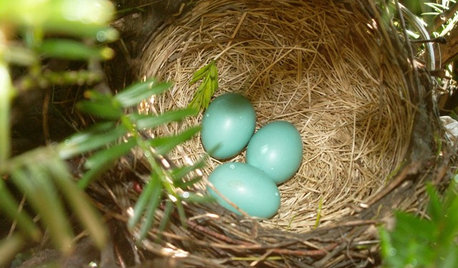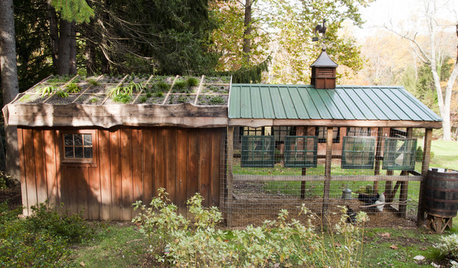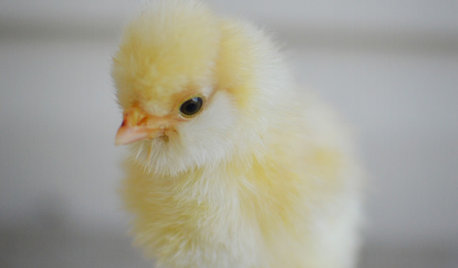worm eggs online site
v1rt
16 years ago
Related Stories

DECORATING GUIDESThe Enduring Appeal of the Egg Basket
Hardworking wire baskets are flying the coop for a life inside, appearing as storage, organizers and decor
Full Story
GARDENING AND LANDSCAPINGBackyard Living: The Scoop on Chicken Coops
Perk up your morning with fresh eggs and chickadee clucks when you build a chicken coop in your own yard
Full Story
GARDENING GUIDESGreat Design Plant: Spigelia Marilandica
Indian pink is a top hummingbird plant for shady sites
Full Story
GARDENING FOR BIRDSWhat to Know About Birds Nesting in Your Yard
Learn how to observe, record data and help ornithologists with NestWatch’s citizen science project understand bird trends
Full Story
GARDENING FOR BUTTERFLIESBe a Butterfly Savior — Garden for the Monarchs
Keep hope, beauty and kindness alive in the landscape by providing a refuge for these threatened enchanters
Full Story
GARDENING GUIDES15 Native Flowers That Feed Native Bees
These perennials offer superfood to hundreds of bees and are gorgeous in their own right
Full Story
FARM YOUR YARDHouzz Call: Show Us Your One-of-a-Kind Chicken Coops
Do you have a fun or stylish backyard shelter for your feathered friends? Post your pictures and stories in the Comments!
Full Story
PETSWhat You Need to Know Before Buying Chicks
Ordering chicks for your backyard coop? Easy. But caring for them requires planning and foresight. Here's what to do
Full Story
LIFEEasy Green: Modern Homesteaders Stake a Claim
With more options for raising chickens, growing edibles and keeping bees than ever, suburban and city folk are rediscovering a lost art
Full StorySponsored
Franklin County's Preferred Architectural Firm | Best of Houzz Winner







iowa50126
v1rtOriginal Author
Related Professionals
Norfolk Landscape Architects & Landscape Designers · Mitchellville Landscape Architects & Landscape Designers · Mount Wilson Landscape Architects & Landscape Designers · Finneytown Landscape Architects & Landscape Designers · Aloha Landscape Contractors · Chattanooga Landscape Contractors · Kailua Landscape Contractors · Ronkonkoma Landscape Contractors · Crowley Driveway Installation & Maintenance · Missouri City Swimming Pool Builders · Overlea Fence Contractors · Collierville Fence Contractors · Olive Branch Fence Contractors · Sunrise Manor Fence Contractors · Troutdale Fence Contractorsv1rtOriginal Author
bpgreen
v1rtOriginal Author
bpgreen
morpheuspa (6B/7A, E. PA)
v1rtOriginal Author
greenjeans_il
whip1 Zone 5 NE Ohio
morpheuspa (6B/7A, E. PA)
v1rtOriginal Author
morpheuspa (6B/7A, E. PA)